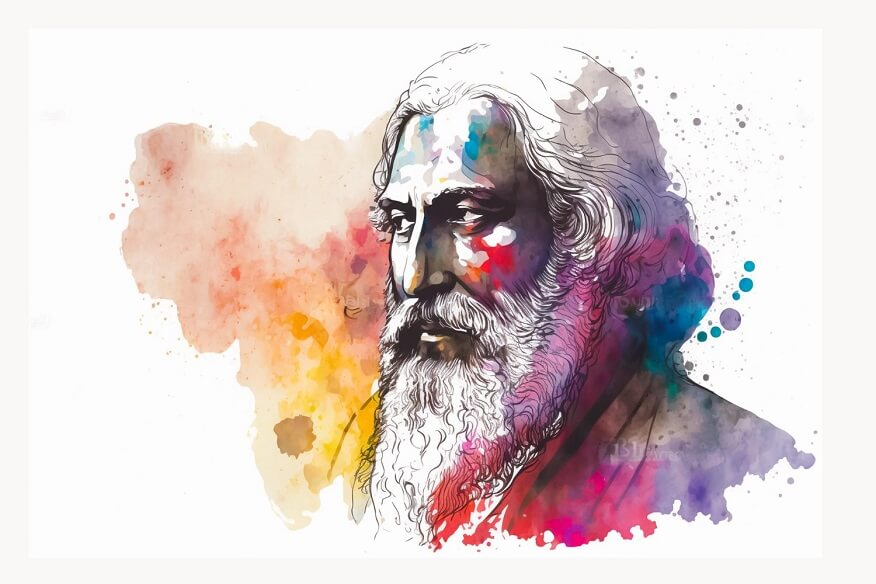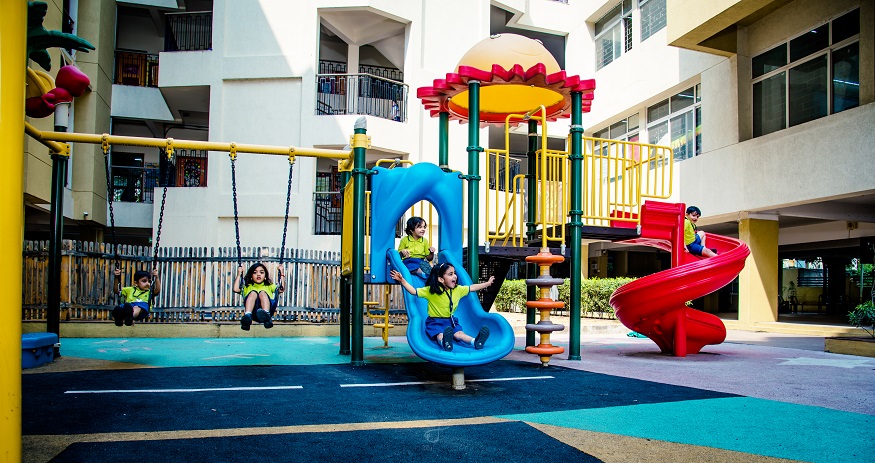Rabindranath Tagore was one of the greatest minds India has ever produced. While we celebrate Rabindranath Tagore’s birth anniversary on May 7th, here are some interesting facts about Rabindranath Tagore.
- Sobriquets
- A young prodigy
- A multi-faceted talent
- His education in England
- First Asian to win the Nobel Prize
- Man behind three national anthems
- Shantiniketan
- Knighthood
- Tagore and Einstein
- Tagore Museums
- Rabindra Bharati Museum in Kolkata at his ancestral home in Jorasanko Thakur Bari
- Rabindra Bhavan Museum, at the Vishwa-Bharti University in Shantiniketan
- Rabindra Museum, at a house he once stayed in Mungpoo, near Kalimpong
Rabindranath Tagore was born in Kolkata (then Calcutta) on May 7, 1861. He started writing at a very young age. He was the youngest of 13 children of his parents. At home, he was nicknamed “Rabi”. He was popularly known as “the Bard of Bengal” along with other colloquial nicknames such as Gurudeb, Kobiguru, and Biswokobi.
Rabindranath Tagore started writing poetry at an early age of 8 years. He published his first book of poetry at the tender age of sixteen under the pseudonym – Bhānusiṃha (“Sun Lion”). His family consisted of several accomplished individuals such as Dwijendranath, his eldest brother, who was both a philosopher and a poet. Another brother, Satyendranath, was the first Indian to be appointed to the Indian Civil Services – an elite group which was dominated by Europeans while, Jyotirindranath, another brother, excelled in music, composition, and playwriting. His sister, Swarnakumari, was a novelist.
Rabindranath Tagore’s multifaceted talent knew no bounds and he excelled in a multitude of art forms as a poet, writer, playwright, composer, philosopher, social reformer and painter. He composed more than 2000 songs which form part of the popular Rabindra Sangeet – the songs written and composed by Rabindranath Tagore. Some of his best-known works are Gitanjali (Song Offerings), Gora (Fair-Faced) and Ghare-Baire (The Home and the World).
His father wanted him to become a lawyer, and that is why he was enrolled in a school in Sussex, England in 1878. He briefly also studied law at the University College London, which he left to study Shakespeare’s plays. Finally, he returned to India in 1880 without any degrees.
In 1913, Rabindranath Tagore was awarded the Nobel Prize for Literature, making him the first Asian and the first non-European to win the Nobel Prize for Literature. The Nobel committee cited the motivation for the prize to be – “because of his profoundly sensitive, fresh and beautiful verse, by which, with consummate skill, he has made his poetic thought, expressed in his own English words, a part of the literature of the West”.
Rabindranath Tagore received the Nobel Prize for his book of Bengali poems called Gitanjali, which had been translated into English. The central theme of Gitanjali is devotion. The original Bengali version of Gitanjali had 156 poems and was published in 1910. The English version has 103 poems and was published in 1912.
Rabindranath Tagore’s Nobel Prize was stolen from Visva-Bharati University in 2004. The Swedish Academy presented two replicas of the award to the Visva-Bharati University, one made of Gold and the other made of Bronze.
Many of us know that the Indian national anthem ‘Jana Gana mana’ was written by Rabindranath Tagore, but many don’t know that Tagore also composed “Amar Sonar Bangla”, the national anthem of Bangladesh. He is also believed to be the inspiration behind the national anthem of Sri Lanka, “Sri Lanka Matha”.
Shantiniketan (or Santiniketan) is a special neighbourhood associated with Rabindranath Tagore. Shantiniketan is located in the Birbhum district of West Bengal, 150 km north of Kolkata, India. Shantiniketan was established by his father Maharshi Devendranath Tagore, a religious philosopher. Tagore expanded his father’s vision and expanded Shantiniketan into a university town by establishing the Visva-Bharati University. Rabindranath Tagore invested his prize money from the Nobel Prize to set up a school in Shantiniketan called “Visva-Bharati”. This school was based on a novel education system – the Shantiniketan Education System. This system was very different from the education prevalent in those times. This system was one of the first co-ed systems of those times.
Rabindranath Tagore was bestowed with the honour of knighthood by King George the 5th of England in 1915 soon after his Nobel Prize for his stellar contribution to literature. However, he renounced the knighthood in protest against the Jallianwala Bagh massacre of April 13, 1919, where 379 peaceful and unarmed demonstrators were mercilessly killed by the British troops under the command of General Dyer.
On July 14, 1930, Tagore met Albert Einstein at his home, another great mind of human existence. Einstein was a world-renowned physicist who won the Nobel Prize for Physics in 1921. This was a conversation between two great minds on the nature and realms of reality. This was one of the most talked about discourses and debates across the world in those times. Incidentally, Tagore and Einstein had opposing views on the nature of reality. Einstein later termed this discourse ‘rather unsuccessful because of difficulties of communication.’ However, despite their differences, their respect for each other was such that Einstein even contributed to The Golden Book of Tagore, released in 1931 commemorating Tagore’s 70th birthday. According to reports, Tagore refused to accept an honorary doctorate from Berlin University in protest against the treatment meted out to Einstein by the Nazis.
There are eight museums dedicated to Rabindranath Tagore – three in India and five in Bangladesh.
Rabindranath Tagore’s birth anniversary, also known as Rabindra Jayanti, is celebrated by his followers the world over. Rabindranath Tagore’s birth anniversary falls on the 25th day of the Bengali month of Boishakh, which happens to be the 7th of May in 2023. Every year various cultural events and Rabindra Sangeet gatherings are organised to commemorate the works of Rabindranath Tagore on the occasion of his birth anniversary. It’s a special day of celebration at Shantiniketan and Visva-Bharati University. In 2011, the government of India introduced a five-rupee coin to mark the 150th Rabindranath Tagore birth anniversary.
Enroll your child with EuroSchool today!










